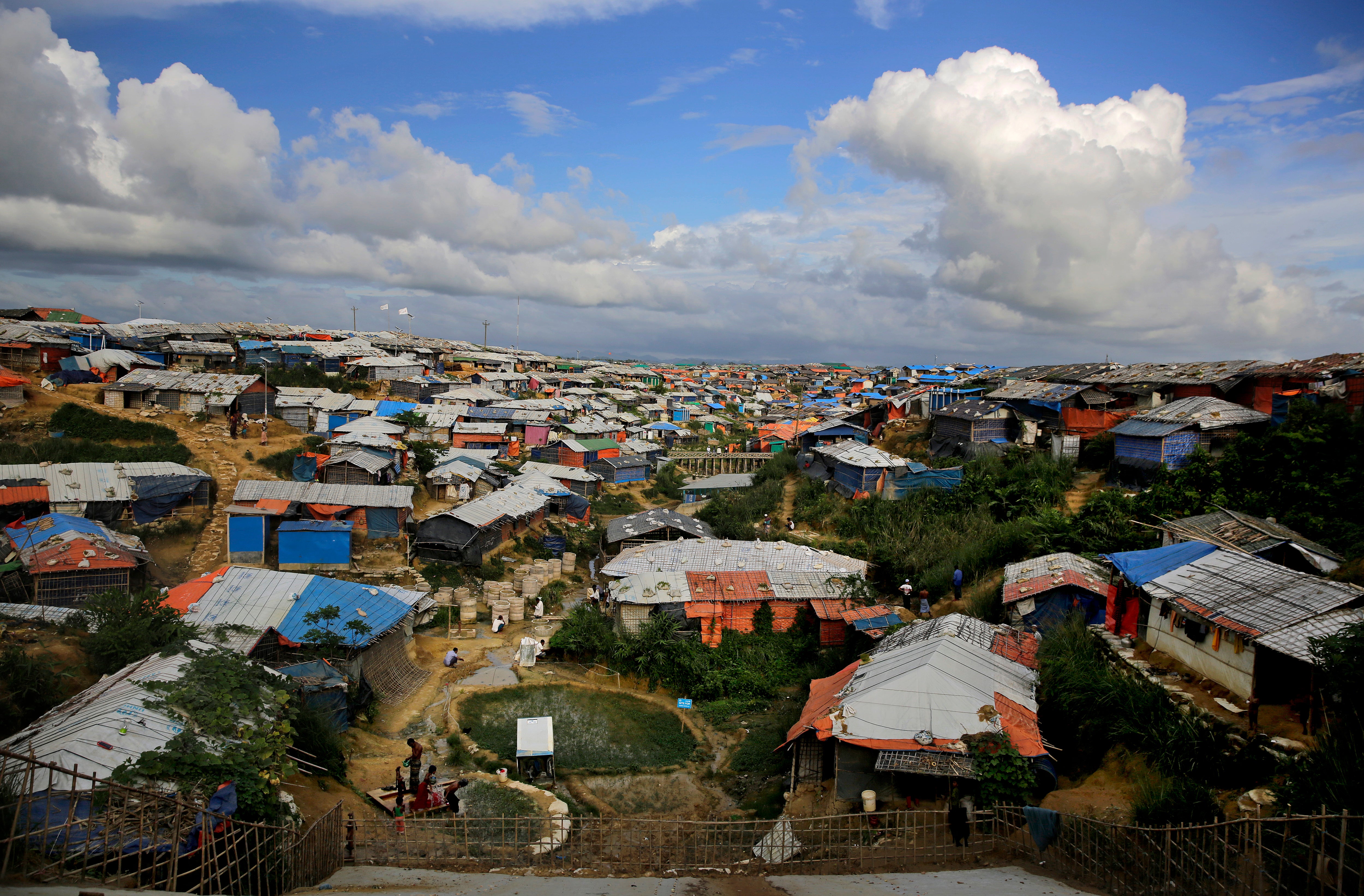Boat carrying Rohingya fleeing Myanmar capsizes, killing 16
At least 16 people from Myanmar’s Rohingya minority have died after a storm capsized the boat they were traveling on as they sought refuge in another country

Your support helps us to tell the story
From reproductive rights to climate change to Big Tech, The Independent is on the ground when the story is developing. Whether it's investigating the financials of Elon Musk's pro-Trump PAC or producing our latest documentary, 'The A Word', which shines a light on the American women fighting for reproductive rights, we know how important it is to parse out the facts from the messaging.
At such a critical moment in US history, we need reporters on the ground. Your donation allows us to keep sending journalists to speak to both sides of the story.
The Independent is trusted by Americans across the entire political spectrum. And unlike many other quality news outlets, we choose not to lock Americans out of our reporting and analysis with paywalls. We believe quality journalism should be available to everyone, paid for by those who can afford it.
Your support makes all the difference.At least 16 people from Myanmar’s Rohingya minority have died after a storm capsized the boat they were traveling on to seek refuge in another country, officials and a recovery team member said Tuesday.
There were 35 survivors of Saturday's accident that took place Saturday off Myanmar’s southwestern coast and four people were missing, the officials said.
UNHCR, the U.N.’s refugee agency, expressed shock and sadness about the accident in a statement and said at least 17 Rohingya, including children, had died.
The boat left the western state of Rakhine last Thursday and encountered bad weather two days later off Ayeyarwaddy Region on Myanmar’s southwestern coast, causing it to capsize, the statement said.
The Rohingya, a Muslim minority, have long been persecuted in Myanmar. More than 700,000 Rohingya have fled the country to neighboring Bangladesh since August 2017 to escape the brutal counterinsurgency campaign of Myanmar’s military following an attack by a Rohingya insurgent group in Rakhine State.
Myanmar’s government has denied accusations that security forces committed mass rapes and killings and burned thousands of homes, but the U.S. government recently labeled actions by the country's military as genocide.
There are more than 100,000 Rohingya left in Myanmar, confined in squalid displacement camps, along with those living in crowded refugee camps in Bangladesh.
Groups of Rohingya from camps in both countries embark on hazardous voyages to the Muslim-majority countries of Malaysia and Indonesia to seek a better living.
“Some 630 Rohingya have attempted sea journeys across the Bay of Bengal from January to May 2022,” the UNHCR statement said, with women and children making up 60% of those trying to flee.
The statement added: "The risk of abuse at the hands of smugglers and the peril of the sea journey itself are both exacerbated during prolonged journeys, when a safe harbor for disembarkation cannot be found.”
An Ayeyarwaddy Region resident said the 16 bodies, including those of two young boys, were recovered near Pathein township, about 300 kilometers (180 miles) west of Yangon, Myanmar’s largest city. He spoke on condition of anonymity because Myanmar’s military government seeks to tightly control the flow of information.
A local official, who also requested anonymity for the same reason, said most of the 50 people on board the boat were men under 30 years old. He said the bodies were buried and that the 35 survivors were taken away by the security forces.
Maung Maung Than, a spokesperson for the Ayeyarwaddy Region government, confirmed that the accident happened but did not give further details.
“The latest tragedy shows once again the sense of desperation being felt by Rohingya in Myanmar and in the region,” Indrika Ratwatte, UNHCR’s director for Asia and the Pacific said in the agency’s statement. “It is shocking to see increasing numbers of children, women and men embarking on these dangerous journeys and eventually losing their lives.”